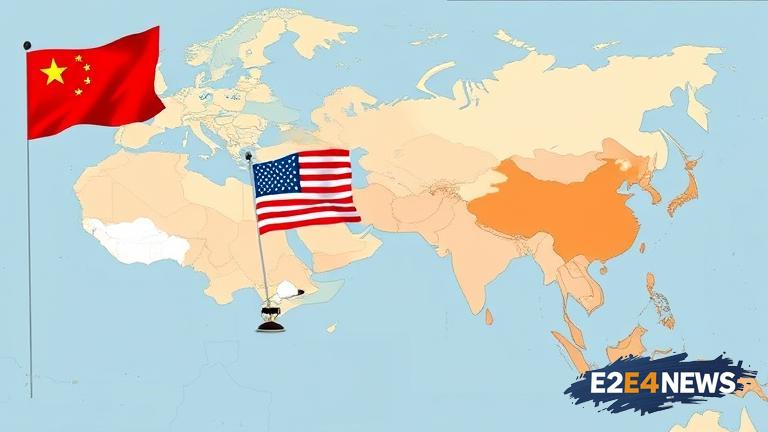China has rejected US demands to cease importing oil from Russia and Iran, emphasizing the importance of energy security and economic interests. The US has been attempting to isolate Russia and Iran through economic sanctions, but China’s stance has significant implications for global energy markets. China is the world’s largest crude oil importer, and its decision to continue buying oil from Russia and Iran will likely undermine US efforts to restrict their oil exports. The US has imposed sanctions on Russian and Iranian oil exports, but China has refused to comply, citing its own energy needs and economic interests. China’s state-owned oil companies, such as China National Petroleum Corporation (CNPC) and China Petroleum & Chemical Corporation (Sinopec), have significant investments in Russian and Iranian oil fields. China has also been increasing its oil imports from other countries, including Saudi Arabia and Iraq, to diversify its energy sources. However, Russia and Iran remain crucial suppliers, and China is unlikely to abandon its energy ties with these countries. The US has been trying to persuade China to support its sanctions on Russia and Iran, but Beijing has resisted, arguing that the sanctions are unilateral and unfair. China has also been promoting its own energy security initiatives, including the Belt and Road Initiative (BRI), which aims to develop energy infrastructure and trade routes across Eurasia. The BRI has significant implications for global energy markets, as it could reduce China’s dependence on US-dominated energy trade routes. China’s refusal to comply with US sanctions on Russian and Iranian oil exports has also been driven by its own economic interests. China’s economy is heavily reliant on energy imports, and any disruption to its oil supplies could have significant economic consequences. Furthermore, China has been investing heavily in renewable energy sources, such as solar and wind power, but it still relies heavily on fossil fuels to meet its energy needs. The US-China trade tensions have also played a role in China’s decision to continue buying oil from Russia and Iran. The US has imposed tariffs on Chinese goods, and China has retaliated with its own tariffs on US goods, including energy products. The trade tensions have created uncertainty in global energy markets, and China’s decision to continue buying oil from Russia and Iran has added to the complexity. In addition, China has been strengthening its energy ties with other countries, including Saudi Arabia and the United Arab Emirates, to reduce its dependence on US-dominated energy trade routes. China’s energy security strategy is driven by its own economic and strategic interests, and it is unlikely to abandon its energy ties with Russia and Iran. The US-China energy rivalry has significant implications for global energy markets, as it could lead to a fragmentation of energy trade routes and a reduction in US influence over global energy markets. China’s decision to continue buying oil from Russia and Iran has also been driven by its own geopolitical interests, including its desire to promote its own energy security initiatives and reduce its dependence on US-dominated energy trade routes. Overall, China’s refusal to comply with US sanctions on Russian and Iranian oil exports reflects its own energy security strategy and economic interests, and it is unlikely to abandon its energy ties with these countries.
